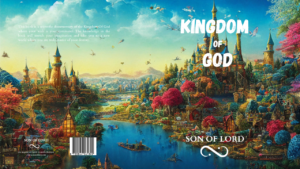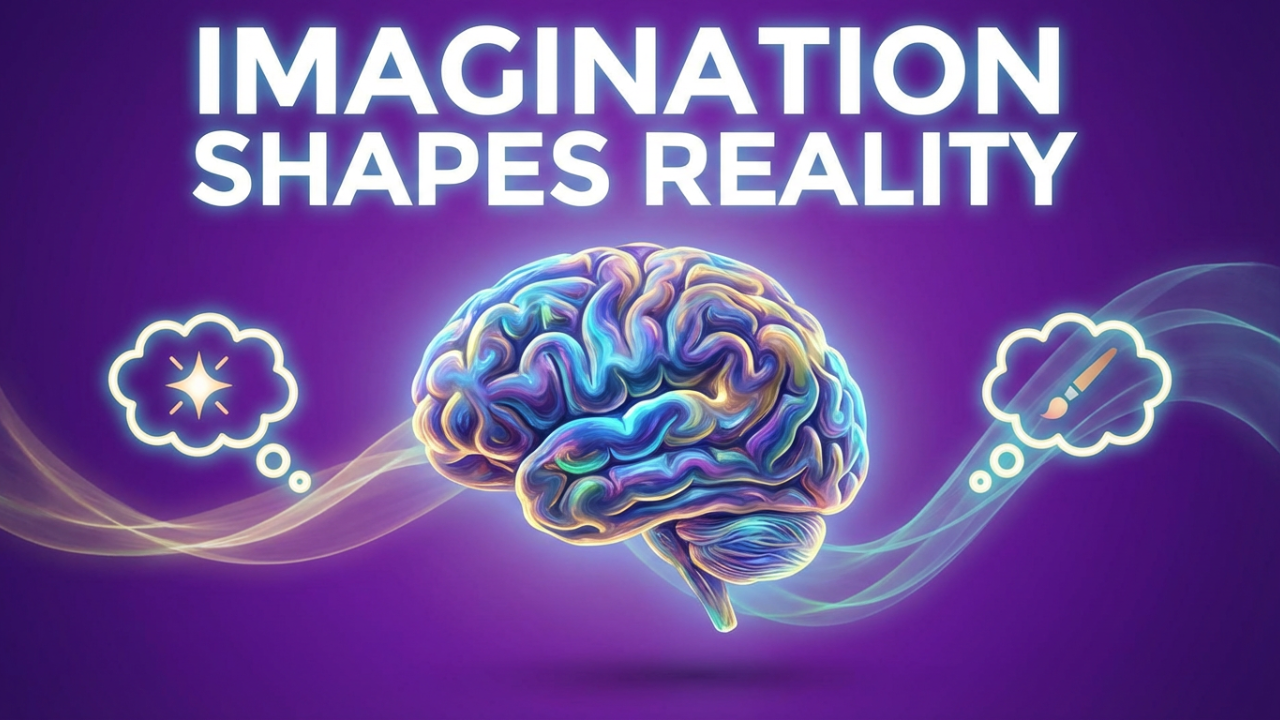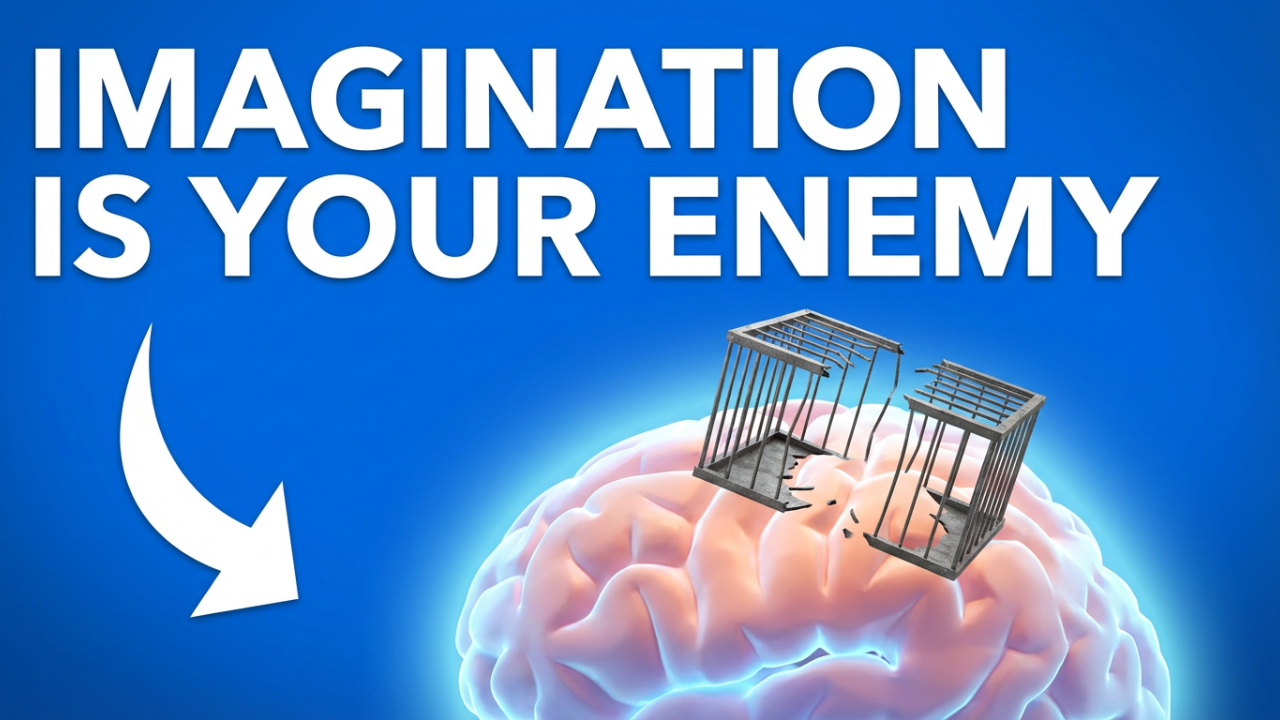What if the single most important message Jesus ever taught has been fundamentally misunderstood for centuries?
For most of modern Christian history, the “Kingdom of God” has been presented as a synonym for heaven. It’s the spiritual reward you get after you die. A cloudy, ethereal realm where you float on wings for eternity. But what if I told you that’s not what the Bible actually teaches?
What if the original, biblical concept of the Kingdom was something far more tangible, far more powerful, and meant to be established right here on this earth? The truth is, the idea of a physical, earthly kingdom has been slowly replaced by a much more modern, and far less biblical, idea of heaven as our final destination.
And today, we’re going to uncover the shocking truth about what the Kingdom of God really is, why it was the absolute core of Jesus’s message, and what that means for us, right here, right now.
Section 1: The Great Distortion: How Heaven Replaced the Kingdom
So, where did we get this idea that the Kingdom of God is just heaven? It’s so common today that questioning it feels almost heretical. We sing songs about going to heaven, pastors preach about it, and it’s the default answer to where believers go when they die. But this wasn’t always the case.
For the early Christians, the Kingdom was not a distant, post-mortem reality. It was an expectation rooted in the prophecies of the Old Testament. Prophets like Daniel spoke of a time when the God of heaven would set up a kingdom that would never be destroyed. A kingdom that would crush all other worldly empires and stand forever. Daniel 2:44 is explicit: “And in the days of those kings the God of heaven will set up a kingdom which will never be destroyed… it will crush and put an end to all these kingdoms, but it will itself endure forever.” This wasn’t a prophecy about a spiritual realm in the clouds; it was about a world-changing, political and social reality on earth.
So, what happened? Over centuries, as the institutional church grew in power and influence, a subtle but significant shift occurred. The immediate, earthly hope of a coming kingdom began to fade, replaced by a more spiritualized, otherworldly concept. It became easier and perhaps more convenient to see the kingdom as a future heavenly reward rather than a present and coming earthly reign that challenges the powers of this world. This interpretation, equating the kingdom with heaven, has led to a massive misunderstanding of Jesus’s core message.
Section 2: What Jesus Actually Taught
To correct this, we have to go back to the source. The phrase “Kingdom of God” or “Kingdom of Heaven” appears constantly in the Gospels, almost always on the lips of Jesus. It was, without a doubt, the central theme of His entire ministry. From the very beginning, his message was clear. Mark 1:15 says, “The time is fulfilled, and the kingdom of God is at hand; repent and believe in the gospel.”
“At hand.” Not in a galaxy far, far away. Not after you die. It’s here. It’s near. It’s breaking into our reality.
Think about the prayer Jesus taught his disciples to pray, a prayer millions recite to this day: “Your kingdom come, Your will be done, on earth as it is in heaven.” The instruction isn’t to pray that we can one day escape *to* heaven. It’s a plea for God’s heavenly rule, His perfect will, to be established and made manifest right here *on earth*. This single line is a powerful declaration that the Kingdom’s intended location is the world we live in.
When Jesus was confronted by the Pharisees and asked when the Kingdom of God would come, He gave a surprising answer. He said, “The kingdom of God is not coming with signs that can be observed; nor will they say, ‘Look, here it is!’ or, ‘There it is!’ For behold, the kingdom of God is in your midst.” The original Greek is better translated as “among you.” Jesus wasn’t telling the Pharisees, whom he often rebuked, that the kingdom was in their hearts. He was telling them that the Kingdom was standing right there in front of them, in His person. His presence, His miracles, His teachings—this was the inauguration of God’s reign on earth.
Section 3: Unpacking the Parables of the Kingdom
Jesus rarely defined the Kingdom with a simple sentence. Instead, he used parables—short stories that revealed its nature. And these parables consistently point to a tangible, growing, earthly reality.
He said the Kingdom is like a mustard seed. It starts as the smallest of all seeds but grows into the largest of garden plants, becoming a tree where birds can perch. This isn’t a picture of a static, otherworldly place. It’s a metaphor for organic, explosive growth that starts small but eventually fills the earth, providing shelter and life.
He also compared it to yeast that a woman works into a large amount of flour until it works all through the dough. The Kingdom is an active, transformative agent. It doesn’t remain separate from the world; it permeates and changes everything it touches from the inside out.
Other parables describe the immeasurable value of the Kingdom. It’s like a treasure hidden in a field or a pearl of great price, for which a person would joyfully sell everything they have to acquire it. This speaks to the supreme importance of aligning our lives with God’s reign, making it our first priority. As Jesus said in Matthew 6:33, “But seek first the kingdom of God and his righteousness, and all these things will be added to you.”
Section 4: Deconstructing Other Misconceptions
The idea that the Kingdom is just heaven is the biggest misconception, but it’s not the only one.
Another common error is to equate the Kingdom of God with the Church. While the church is the community of people who belong to the Kingdom and are its primary agents in the world, they are not the same thing. The Kingdom is God’s sovereign rule; the church is the body of believers called to witness to that rule. The church is an expression of the kingdom, but the kingdom is larger than the church.
A third distortion is to reduce the Kingdom to a purely internal, mystical experience. While the reign of God certainly begins in the human heart, it is not meant to stay there. The Kingdom has social, ethical, and political dimensions. It’s about righteousness, peace, and justice in the real world, not just a warm feeling inside. Paul described it this way in Romans 14:17: “For the kingdom of God is not a matter of eating and drinking, but of righteousness and peace and joy in the Holy Spirit.” It is a tangible reality that affects how we live together.
This brings us to the “already and not yet” nature of the Kingdom. The Kingdom was inaugurated with Jesus’s first coming—it is “already” here. We can experience its power, its forgiveness, and its transforming grace right now. But it has not yet been fully realized. The final consummation of the Kingdom awaits Christ’s return, when He will establish His reign over all the earth. Revelation 11:15 proclaims, “The kingdom of the world has become the kingdom of our Lord and of His Christ; and He will reign forever and ever.” Understanding this tension helps us avoid both triumphalism, acting as if the work is finished, and passivity, waiting around for a future escape.
Section 5: Why This Truth Matters
So why is this so important? Why does it matter if we see the Kingdom as a present, earthly reality or a future, heavenly escape? It changes everything.
First, it redefines our hope. Our hope is not in leaving the world behind, but in its ultimate restoration. It’s a hope for a renewed earth, where God’s will is done perfectly. This gives us a stake in the future of this planet and a reason to work for its healing and renewal.
Second, it redefines our mission. If the kingdom is just about getting souls into heaven, then our only job is evangelism. But if the Kingdom is about God’s will being done on earth, then our mission is much broader. It includes working for justice, mercy, peace, and reconciliation in our communities. We become ambassadors of the coming new creation, demonstrating what life under God’s rule looks like in every area of life.
Finally, it redefines our discipleship. Following Jesus isn’t just about securing a ticket to the afterlife. It’s about submitting to His kingship right now. It’s about learning to live by the values and ethics of His kingdom—love, humility, service, forgiveness—and allowing those values to transform us and the world around us.
The truth about the Kingdom of God is not just a theological debate. It’s a call to action. It’s an invitation to see the world, our faith, and our purpose in a completely new light. This is a massive topic, and we’ve only scratched the surface.
Amazon link for book Kingdom of God by SON OF LORD.
Conclusion
For centuries, a distorted view has robbed Christians of the power and purpose found in Jesus’s central message. The Kingdom of God is not a mythical escape plan. It is the tangible, powerful, and ever-advancing reign of God, inaugurated by Jesus Christ, and destined to one day fill the entire earth.
It has already begun. The King has come. And He has invited us to be citizens of His government, to live by its laws, and to be ambassadors of its coming glory. This is the shocking, and glorious, truth about the Kingdom of God. It’s not just our future hope; it is our present reality and our lifelong mission.







